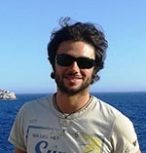DNA reveals the past and future of coral reefs
New DNA techniques are being used to understand how coral reacted to the end of the last ice age in order to better predict how they will cope with current changes to the climate. James Cook Univer

From 2005 to 2022, the main node of the ARC Centre of Excellence for Coral Reef Studies was headquartered at James Cook University in Townsville, Queensland (Australia)








Abstract: I will show the results of a project on the global ecology and biogeography of reef fishes. The project allowed for the compilation of two extensive global databases, the first on the geographical distribution of 6,316 reef fishes and the second comprising abundance information from about 10,000 transects across the world. This information was used to conduct three main studies which include the quantitative delineation of biogeographical regions for reef fishes at a global scale, the development of a global predictive model for species richness, and finally the biogeographical analysis of functional structure and redundancy of species assemblages. Further our global databases are presently being used during my visit at JCU for the analysis of global scale assembly rules in reef fish assemblages. Overall, our results allowed for the definition of several biogeographical units, consisting in three realms, 6 regions and 11 provinces. Despite large differences among these biogeographical units in term of richness, mainly related to reef area, the functional diversity of assemblages is surprisingly stable across the entire tropical world. However, such high functional diversity does not result in lower vulnerability to species loss as even in highly diverse assemblages, such as those of the Indo-Australian Archipelago, there may be limited functional redundancy.
Biography: Following a PhD in Marine Environmental Science at Genoa University, Italy, Dr Parravicini worked with Fiorenza Micheli in Stanford University, before taking on a post-doc position with IRD based in France. He is currently working with a large international group on reef fish biogeography including Michel Kulbicki (IRD), David Mouillot (Montpellier) and David Bellwood (JCU).
New DNA techniques are being used to understand how coral reacted to the end of the last ice age in order to better predict how they will cope with current changes to the climate. James Cook Univer
A new study on the effects of climate change in five tropical countries has found fisheries are in more trouble than agriculture, and poor people are in the most danger. Distinguished Profess
James Cook University researchers have found brightly coloured fish are becoming increasingly rare as coral declines, with the phenomenon likely to get worse in the future. Christopher Hemingson, a
Researchers working with stakeholders in the Great Barrier Reef region have come up with ideas on how groups responsible for looking after the reef can operate more effectively when the next bleaching
Abstract: As marine species adapt to climate change, their heat tolerance will likely be under strong selection. Individual variation in heat tolerance and its heritability underpin the potential fo
Abstract: The Reef Ecology Lab in KAUST’s Red Sea Research Center explores many aspects of movement ecology of marine organisms, ranging from adult migrations to intergenerational larval dispersal
Abstract: Macroalgal meadows are a prominent, yet often maligned component of the tropical seascape. Our work at Ningaloo reef in WA demonstrate that canopy forming macroalgae provide habitat for ad
Abstract: Sharks are generally perceived as strong and fearsome animals. With fossils dating back at least 420 million years, sharks are not only majestic top predators but they also outlived dinosa
Abstract: Connectivity plays a vital role in many ecosystems through its effects on fundamental ecological and evolutionary processes. Its consequences for populations and metapopulations have been
Abstract: Evolution of many eukaryotic organisms is affected by interactions with microbes. Microbial symbioses can ultimately reflect host’s diet, habitat range, and even body shape. However, how
Abstract: The past few years have seen unprecedented coral bleaching and mortality on the Great Barrier Reef (GBR) but the consequences of this on biodiversity are not yet known. This talk will expl